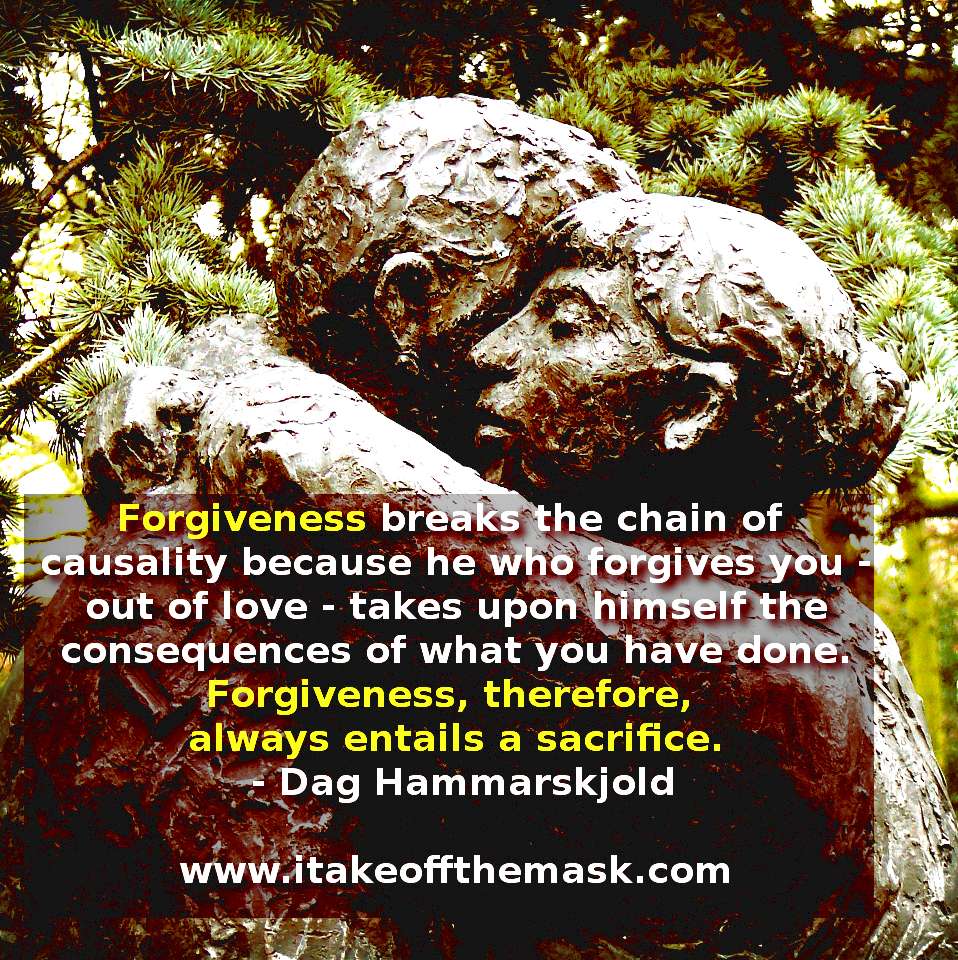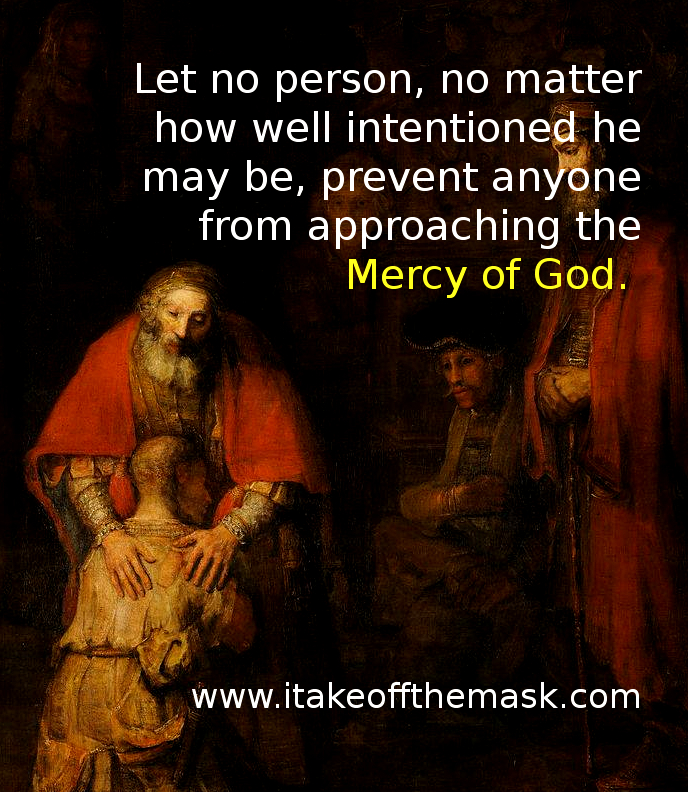
Forgiveness breaks the chain of causality because he who forgives you – out of love – takes upon himself the consequences of what you have done. Forgiveness, therefore, always entails a sacrifice. – Dag Hammarskjold
No matter how people try to explain forgiveness, there will always be a part of it that is hard to understand. Forgiveness is never an easy thing. It is not resolved through a given formula. It is not achieved by sheer willpower and strength.
For people who have been terribly hurt, forgiveness will always beg the question for justice. When an offender is forgiven, who will pay then for the damage he has done? It is this element that often bewilders our hearts and our minds. Must forgiveness mean the absence of justice for the one who has been hurt?
But justice must never be missing. It may remain invisible to our eyes, but it is there. In forgiveness, it is a justice that is veiled in mercy, a mercy that comes from love.
In its highest ideal, it is love itself that pays. It is love that makes the necessary sacrifice.
For while we were yet weak, at the right time Christ died for the ungodly. For one will hardly die for a righteous man. Yet perhaps for a righteous person someone would even dare to die. But God commends his own love toward us, in that while we were yet sinners, Christ died for us. – Romans 5:6-8, WEB



